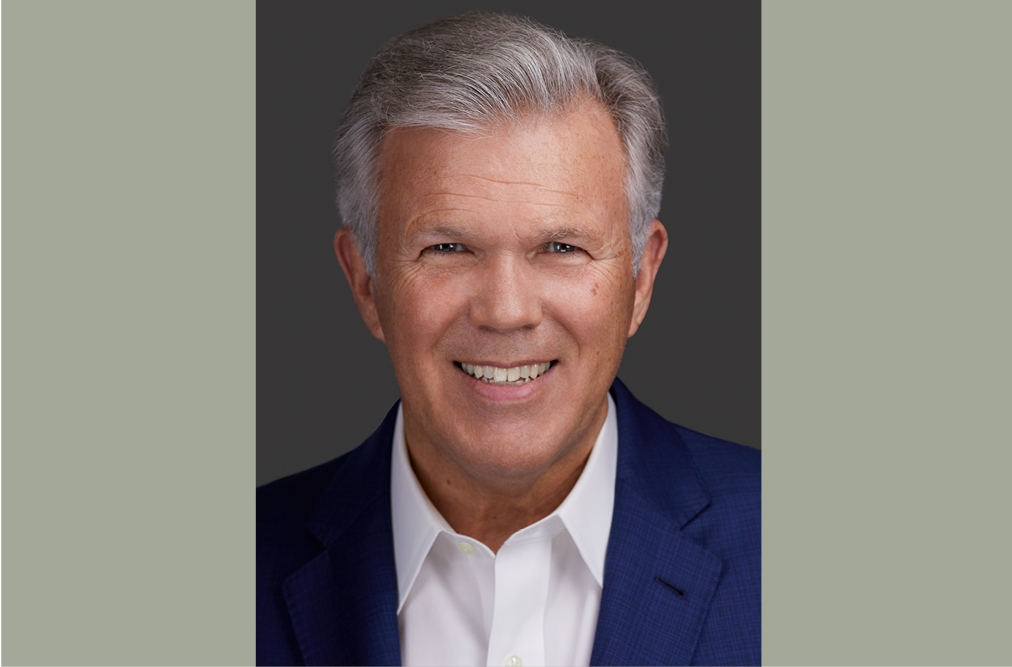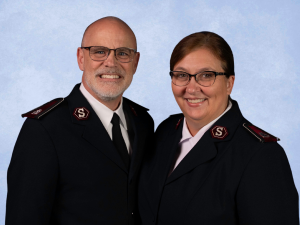Did you know one-third of your life will be spent at work?
That’s 90,000 hours over the course of a lifetime.
And that’s a lot of hours.
So, of course, you want to spend that time in a healthy environment.
Al Lopus would call it a flourishing workplace.
Al is the cofounder and CEO of the Best Christian Workplaces Institute and author of the new book, “Road to Flourishing: Eight Keys to Boost Employee Engagement and Well-Being”
He works to provide research-based measurement tools and strategic advisory services to help Christian organizations set the standard as the best, most effective workplaces in the world.
He serves on the advisory council of the Christian Leadership Alliance, having previously served as a board member.
And he is on the show to share the research on flourishing workplaces and how to get there, including more than a few tangible tips on the eight key drivers for a healthy workplace culture.
Show highlights include:
- The work Al does as cofounder and CEO of the Best Christian Workplaces Institute.
- More about his story and career focused on culture and human resources.
- What a healthier workplace would look like.
- How the group culture affects personal engagement.
- The shifts Al is seeing after two years of pandemic work.
- Why this matters now, on our way out of the pandemic, more than ever.
- The biggest threat to healthy workplaces today.
- The cost of an unhealthy workplace.
- The eight key drivers in companies with a healthy culture and engaged employees and a tip from each.
- What surprised Al in forming this list.
- Whether one is any more important than the others.
- From his research, an example that stands out of a company doing one of these really well.
- Whether you’re an employee or someone in more of a decision-making role of a company, Al’s best advice for contributing to a healthy workplace.
Listen and subscribe to the Do Gooders Podcast now. Below is a transcript of the episode, edited for readability. For more information on the people and ideas in the episode, see the links at the bottom of this post.
* * *
Christin Thieme: Al, welcome to the Do Gooders Podcast. Thank you for being here with me today.
Al Lopus: It’s great to be with you, Christin. Thanks. I want to thank you for the great work that you do and the work that The Salvation Army does. We’ve enjoyed working with The Salvation Army, particularly Kroc Centers around the country.
Christin Thieme: Oh, I appreciate that. The Kroc Centers are amazing. Celebrating [in June] the 20th anniversary of the first Kroc Center in San Diego.
Al Lopus: Fantastic.
Christin Thieme: Can you tell us as we start here more about the work that you do as the co-founder and CEO of the Best Christian Workplaces Institute? What does that mean?
Al Lopus: Christin, we have a simple vision and that is that we believe that Christian workplaces should set the standard as the best, most effective places to work in the world. And, and in order to do that, we help to equip and inspire Christian leaders to build an engaged, flourishing workplace. I’ve just completed the book “Road to Flourishing,” which helps outline what that is. For organizations to be on the road to flourishing, we help them discover, build and grow a flourishing workplace. One of the primary things we do is an employee engagement survey of employees in the Christian workplace. We also do 360 development reviews for leaders and discovery groups and action planning and then for growing to help implement new processes. So that’s a bit about the Best Christian Workplaces and how we work with our clients, or what we call our mission partners.
Christin Thieme: I love it. You mentioned the book. You’ve written this book called “The Road to Flourishing: Eight Keys to Boost Employee Engagement and Wellbeing,” which really lays out a lot of practical advice and encouragement to do exactly what you’re talking about here. In it you talk a little bit about your own career that has been focused on culture and human resources. Can you tell us a little bit more about your story and what’s led you to do the work that you do today?
Al Lopus: Even starting in college, I always seemed to be asking the question, why do people in groups work the way they do and how can they improve? And so, I came to faith while I was in college and really the first year as a Christian, I started working with the high school ministry named Younglife. We had a remarkable group. We had a flourishing team that worked doing evangelical and discipleship work with high school kids in the Penn state area. That just really set a template in my mind of the way teams should work and how, because of our Christian faith, how we worked so well together. Then, as I got into the marketplace, I saw and experienced toxic workplaces. I experienced healthy workplaces. I even worked, experienced some flourishing workplaces, but it was that experience in college with other Christians, a diverse group of Christians doing ministry together, that set that picture in my mind of what a flourishing workplace should be like.
Then as I was managing for a large human resource consulting firm that had offices in Seattle and Portland, I also started to work on the best companies to work for in the Washington and Oregon area with the statewide business magazines. That was also a fascinating process. But then, at age 50, as the way I describe it, divine providence called and I answered the call. That really led to the creation of the Best Christian Workplaces Institute. I’ve been devoted for the last 20 years to help Christian workplaces improve the health of their cultures.
Because I believe that in order for Christian organizations to be impactful, like I experienced in college, when people saw how our teams worked together, they were attracted to us. They would say, “You’ve got something different. You’re different the way you love one another and I want to be part of that.” Of course, I’ve seen toxic church cultures where people are hurt by being part of that culture. That’s kind of my holy discontent and that’s why I’m focused so much on really improving the health of Christian workplace cultures.
Christin Thieme: What does a healthy workplace look like then, and what separates a healthy workplace from a flourishing one?
Al Lopus: Well, when we walk into a workplace where people are working, you can almost at least intuitively feel, how are these people interacting with each other? I remember walking into a workplace, a Christian workplace, and everything was as quiet as if nobody was there. It was just silent. I thought, “Wow, this is not a healthy workplace.” People were fearful. They were afraid. They didn’t want to be caught interacting with anybody. It was a place filled with fear.
A healthy workplace, even a flourishing workplace, has high levels of trust where people really are willing to put in discretionary effort to help the organization succeed and help get the work done. These are people that spend time together. They have fun together. They really work toward the goals that they have. There’s servant leaders that, as Jesus says, that we’re not to lord it over others like the Gentiles do. He was really all about servant leadership and where leaders are helping people to flourish in their roles, in the jobs that God has called them to do.
So that’s what I consider, those are just a few elements, of a flourishing workplace. You walk into some workplaces and you just feel like, “Wow, I’m glad to be here. Boy, this must be a great place to work.” That attracts people to that kind of a kind of an environment. So that’s what a flourishing workplace looks like from my perspective versus a toxic workplace where people would just as soon not be there.
Christin Thieme: So this might seem obvious, but when you’re in a workplace, how does that overall group culture affect personal engagement? Then what is the effect of that on the company?
Al Lopus: So I believe in the value proposition that a healthier, flourishing culture creates employee engagement. Because when you’re in a healthy culture, you want to be there, you want to do your best. You really want to contribute to the success of what that team is trying to do. That leads to actually meeting the needs of the ministry recipients. Those that you’re trying to serve. When you’re doing a great job serving because people have been around long enough to know their jobs and to do a good job, then you’re impacting the world in the work. People are observing and noticing the impact that you’re making. They become loyal to the organization or ministry, and that results in the ministry growing and making even a greater impact as you go forward. So, that’s kind of the value proposition, if you will, to having a flourishing workplace culture. I mean, that really does, when it’s flourishing, that causes people to really want to be part of the organization and contribute with their whole being. That’s the beauty. We’ll talk more about what some of the eight keys are later.
Christin Thieme: Yes, definitely. Have you seen much of a shift in any of this group culture idea and the strategy around it after two years of pandemic work, which completely upended how we worked beforehand?
Al Lopus: Initially what we saw, yeah, we’ve seen big differences—people working from home independently. Initially, what we saw is that leadership teams cut out everybody else from the participation in the organization. Because decisions had to be made quickly, organizations had to figure out, “Okay, what are we going to do?” and they had to make some quick decisions. That’s a good thing, but they really left out in many cases the front line of the organization. So that is working and coming back.
Also, we saw during the pandemic where there needed to be different kinds of communication and more communication than there was before. So we’ve seen a lot of organizations, we’ve seen a lot of technology tools being used, and videos from leaders going to all employees. We’ve got one organization that we know that uses Marco Polo. It’s a kind of a video app where there’s a short couple minute video every morning from the leader to the rest of the team about what’s going on.
Another thing that we noticed is one-on-ones. Because people were working at home and remotely, you need to be connected to the organization. Well, what’s the logical way to connect people? And that’s through the manager, through the frontline supervisor. So we’ve seen a tremendous increase in the practice of having mandatory weekly or every other week one-on-ones where the employees are connected to the organization, through their supervisor. That’s become an even more critical role. So, those are a couple of the things that we’ve seen as a result of the pandemic.
Christin Thieme: What would you say is the biggest threat to healthy workplaces today as we’re on our way out of the pandemic, but still changed by it?
Al Lopus: Well, Christin, you’ve probably heard of the Great Resignation. I’d say that’s the biggest threat these days. I mean, people are leaving. Four million people a month are quitting their jobs in the United States. Eleven million open jobs out there. According to a survey, half the people are looking for a new job or would consider a new job after the pandemic. So, we’re seeing this Great Resignation. Also, organizations like The Salvation Army and other similar kind of organizations, what’s the key to retaining your best people? Well, I believe the anecdote to the Great Resignation is a flourishing workplace culture where, and it’s a proven fact, that if people love the culture that they’re working in, they love the organization, then it’s going to take at least a 20% pay increase for them to leave. So, what’s the biggest issue is turnover, and when you’ve got a lot of turnover, then you’re just spinning your wheels as an organization. Your impact really is minimized. So, keeping your talented people, keeping them productive, that’s really the key to the Great Resignation.
Christin Thieme: In your book, you go into these eight key drivers that you have found for companies with a healthy culture and to keep engaged employees. I’m wondering if we can do a little bit of a workshop style here and go through each one of these eight and maybe just one tangible tip for each of these drivers? So, if that’s all right with you, the first one is fantastic teams.
Al Lopus: Let me say that, Christin, people wonder, “So where did you come up with these eight keys?” These are what I think creates a healthy workplace culture. We’ve analyzed hundreds of thousands of employee engagement surveys, and the statistical analysis, the factor analysis tells us these groups of eight groups of questions are the keys to employee engagement.
Then, we looked at, well, what are those groups? How would you describe them. So, teamwork and around talent and so on. The acronym, for your Salvation Army officers, they know if they’re going to preach on Sunday, they need a way to have an acronym. The word flourish, F-L-O-U-R-I-S-H, is an acronym for these eight drivers. So, just a little background there.
So, fantastic teams, you asked. What we find, here’s a couple of tangible tips. One is develop skills to manage conflict. In Christian organizations, we want to be nice. In fact, we’re too nice. We just let conflict go unresolved, and when you leave conflict unresolved, it ultimately blows up. So, there are skills to help deal with conflict in a positive way.
Also, here’s a challenge. Teamwork across departments is also a big challenge in organizations. Having a cohesive leadership team is the anecdote to bad teamwork across departments. So, there’s a couple of thoughts on fantastic teams.
Christin Thieme: All right. Life giving work is next.
Al Lopus: Life-giving work, the L in flourish. Millennials really want to know that the work they do is important. That’s what life-giving work is all about. Connecting people with a meaningful purpose and to connect everyone’s work with a meaningful purpose. So, when you’re working with teammates, be sure to point out, especially if you’re a supervisor or manager, what they’re doing and how that impacts the organization for good. Also, here’s a second thing, making sure people are in jobs where they’re able to use their skills and their gifts in their jobs. Thirdly, I’ll say, to have some fun while you’re working. Create an environment of fun and playfulness, and that’s close to the gift of joy from my perspective that we experience as Christians.
Christin Thieme: Okay, the O, outstanding talent.
Al Lopus: Outstanding talent. Don’t we love to work on teams where people are able to make a great contribution and they’re working with people that do make a contribution? We want to retain our best employees. Here’s a key. Think about how much time you spend interviewing new employees. Well, what if you spent up that same amount of time trying to retain your best employees? So, I encourage leaders, who are your best employees? Do stay interviews with them, not to spend so much time interviewing new people, which is less productive than actually spending time and interviewing to see how you could remove barriers to keep your best people.
Christin Thieme: All right. Next is uplifting growth.
Al Lopus: Uplifting growth. Again, that’s the kind of the connection I was talking about that we really discovered during the pandemic where having one-on-ones, connecting employees with the organization through their manager. People want to feel a sense of belonging, safety, security. They feel like they definitely want to be cared for, and they want to have opportunities to develop on the job. Seventy percent of development is on-the-job training. So, the supervisor is really the key. That frontline manager is the key. So, one-on-ones and relationships between managers and employees. People join organizations, they leave managers.
Christin Thieme: So true. All right. The R, rewarding compensation.
Al Lopus: People need to know that an organization appreciates them so that they don’t need to worry about their family’s existence. Having a meaningful and competitive compensation salary, having helpful benefits for medical, retirement, paid time off, those are all key things that are just baseline necessities for an organization.
Christin Thieme: I, inspirational leadership.
Al Lopus: Inspirational leadership. This is, Christin, the most important of these eight drivers. Flourishing cultures have leaders that have high character—and we look at Christian character in Christian-led organizations—as well as competence. It’s the trust and integrity that brings the organization together. Here’s a thought, 360s to help leaders be more effective. Having a 360 leadership review to help leaders become more effective to make sure that the organization has inspirational leadership.
Christin Thieme: Sustainable strategy.
Al Lopus: Again, I mentioned Millennials and Gen Z, they want to work in an organization that is making an impact. They want to be part of an organization that is making a big impact certainly beyond themselves. And so, for a sustainable strategy, you know, I would say here’s a couple of thoughts. Have clear one-year, three-year, and ten-year goals, and involve your employees in the creation of those goals.
Christin Thieme: And lastly, healthy communication.
Al Lopus: Communication is not one way. I was talking with a church about this and they didn’t do so well in the healthy communication. They said, “Oh, well, we’ll fix that. We have communicators.” I said, “No, that’s not what we’re talking about. I know what you’re talking about. You’re talking about preachers who talk.” Well, we’re actually talking about listening, not talking. We want you to go out and seek the suggestions of your employees, act on those suggestions, involve them in decisions. That’s what healthy communication is from our standpoint. So we recommend that you have listening tours where leaders go out and actually have some question that they ask to listen, but also to have weekly, monthly, quarterly, annual rhythms of communication that bring transparency so that everybody knows what’s going on. It eliminates the grapevine and it’s more people find out the truth through regular communication rhythms that the organization has.
Christin Thieme: As you came to these eight keys and analyzed all of the data of the employee engagement surveys, did anything that you came across surprise you?
Al Lopus: Well, as we were going through … That’s a great question. Thanks. As we are looking at these groups of questions, I was looking, “Okay, communication, we understand that. Talent, yeah, of course. Oh teamwork, yeah, absolutely.” But then this group of questions that we are calling life-giving work, that surprised me. Where people … yet I shouldn’t have been surprised. But it’s a combination of issues that are employee-oriented. Do people feel like the work they’re doing gives them significant meaning and purpose? Are they able to use their skills, their gifts in their job? Do they have a leader who gives them responsibility and authority to do their job? Or are they being micromanaged? Is there an environment where, well, gosh, you can have fun at work?
So those combination of issues altogether, we thought, well, that’s interesting. Okay. So we’re just going to call that life-giving work. What we found, Christin, is that’s the competitive advantage that Christian organizations have in the marketplace. To attract people to Christian organizations, what do we have to offer? Well, the work we’re doing provides impact on people’s lives for eternity. Not just in this lifetime, but forever. That really is life-giving work.
Christin Thieme: Absolutely. I was just going to ask you, I mean, these all seem like areas that would be important for any company to look at to be effective. But why is it even more important for a Christian workplace and maybe even what is the scriptural basis of work? Where are we coming from in this idea of work and making it a healthy experience?
Al Lopus: I think about that when I was a young believer working while I was still in college. I remember reading John 10:10 where Jesus says, “I’ve come that you might have life and life to the full or life abundantly.” Then I was reading through and I was just … to be a disciple, you deny yourself. You pick up your cross, you follow follow Jesus. Then, I was really, my perception of leadership was turned upside down when the greatest among you is the one who serves. Then, also 1 Peter 5:3, and you think about the Peter story of denying Christ three times, and then breakfast on the beach after the resurrection where Jesus is asking him, “Peter, do you love me?” Of course he felt, every time that was asked, he felt worse, I’m sure. He said, “Yes, Lord. You know I do.” And Jesus would say, “Well, feed my sheep. Tend my lambs.”
Well, at the end of his life, in 1 Peter 5:2-3, Peter says, “Shepherd the flock that God has entrusted to you.” Who’s the flock? I think the flock is our staff first. Oftentimes we think about it’s those that are receiving our ministry, that we’re serving as an organization. But I think for a leader, the first ministry they have is to their staff. And so, those are a couple of places where I’d say Scripture really reinforces the importance of creating a flourishing culture through a servant leader model in the workplace.
Christin Thieme: That’s an important way to look at that for a leader. Is there an example that stands out to you from your research of a company that are doing these eight things really well?
Al Lopus: Well, you’re coming to us from Southern California and there’s another ministry there in that area, Joni and Friends. I refer to them in the book frequently. Doug Mazza was the President there for 20 years, working with Joni. The ministry grew under that 20 years from $2 or $3 million a year to a $50 million a year ministry. They had a just consistently flourishing workplace culture. Doug was an inspirational leader. They had great teamwork. They were integrated. They had values. They had four pillars that the organization believed in and that they were … let me just think for a second. One was they would lead like Jesus. They would be integrated where they worked together as a team. The team was more important than … I mean, the entire group was more important than any individual. They focused on their areas of competence and they were a best Christian workplace, those four pillars.
So Joni and Friends would be one. On the east coast in Florida, there’s a group called 4KIDS that we just love. They provide foster care and counseling and adoption services. They want every kid that has a need in South Florida to be taken care of in Christian homes. In the book, we highlight dozens of great workplaces.
Christin Thieme: I love it. Well, lastly, whether you’re an employee or someone who is in more of a leadership role, decision-making role in a company, what would you say is your best advice for any individual contributing to a healthy workplace?
Al Lopus: I’d say the first thing is discover the health and measure the health of your workplace. That’s the first thing a leader can do in a decision-making role. What is the actual health of your workplace culture? It’s like reading a financial statement. We do financial statements on a regular basis. On a personal basis, we get a physical on a regular basis so we know that we’re healthy or not. Oftentimes because culture is hard to see and therefore hard to measure, it’s hard to know, well, how healthy is our culture? So that’s the first thing I’d say is measure the health of your workplace culture so you know what it is, and then you know what you can work on.
But then I’ll also say, and maybe conclude with this, is that you can only bring to your job and your role who you are. And so, we need to develop our own relationship with our powerful and loving God and bring that to the workplace. Because it’s through the love in our heart that comes from our relationship with God that it allows us to love one another and create a healthy workplace.
Probably the final thing is, okay, based on all that, we need to live the values that we have as an organization. So those are a couple of final thoughts, I’d say, Christin, as we look at this topic.
Christin Thieme: I love it. Well, there is much, much more in the book, “Road to Flourishing.” Al, thank you for sharing with us. Thank you for giving us this insight and for writing this book that gives us eight keys to boost employee engagement and wellbeing. Thank you so much.
Al Lopus: Thank you, Christin. It’s a pleasure to be with you and God bless you and The Salvation Army.
Additional resources:
- Read “Road to Flourishing: Eight Keys to Boost Employee Engagement and Well-Being” (IV Press, 2022) by Al Lopus.
- Start your day with goodness. Get on the list for Good Words from the Good Word and get a boost of inspiration in 1 minute a day with a daily affirmation from Scripture sent straight to your inbox. A pep-talk for the day. A boost of inspiration and comfort. A bit of encouragement when you need it. Get on the list and start receiving what you need today.
- Listen to the Do Gooders Podcast Episode 115 An inside look at unique offerings of the West’s seven Kroc Centers for more about these 26 state-of-the-art community centers across the nation.
Listen and subscribe to the Do Gooders Podcast now.











